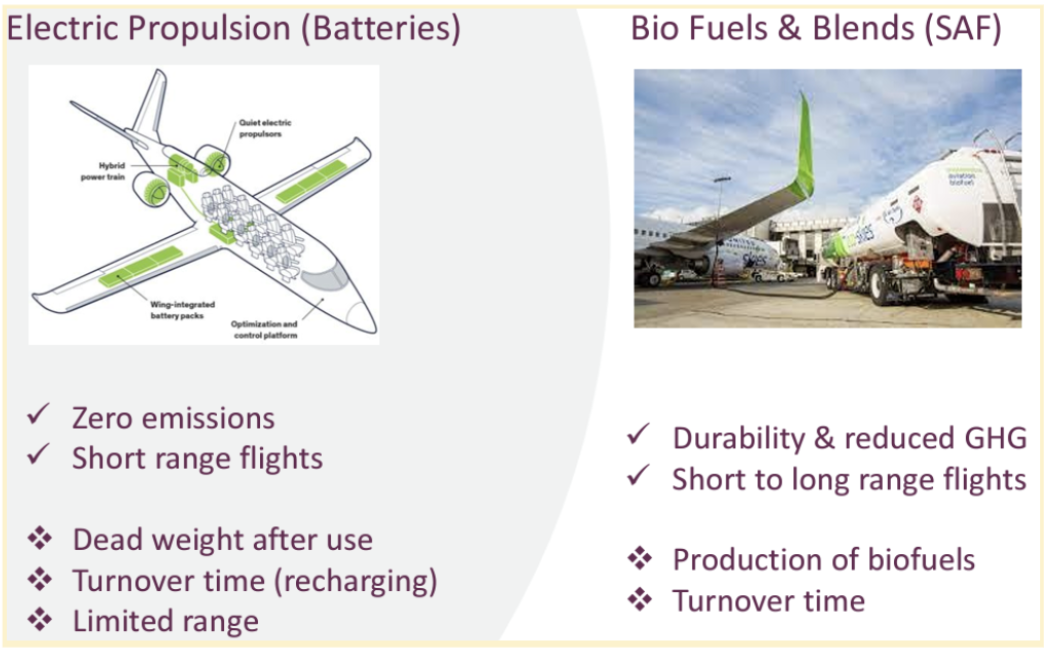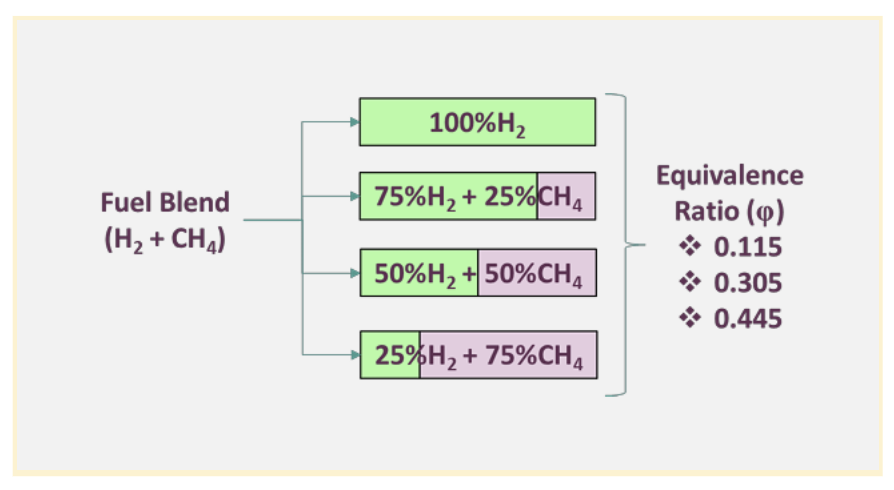
The urgency to mitigate global warming, predominantly driven by Greenhouse Gas (GHG) emissions, has accelerated the search for sustainable aviation fuels (SAFs). The aviation industry, notorious for being a major GHG contributor and inefficient fossil fuel consumer, is a core area for intervention. At Quest Global, propelled by the global agenda for a greener future, we have been actively engaged in innovative research to discover sustainable fuel alternatives for aviation and beyond.
Quest Global is at the forefront of pioneering research and development aimed at realizing the ambitious goal of net-zero carbon emissions by 2050, in line with the Paris Climate Accord. Focusing on the aviation sector, our engineers have identified vast potential for substantial emissions reduction. This article illustrates our exploratory journey into developing a viable Sustainable Aviation Fuel (SAF) alternative—blended hydrogen fuel. Through meticulous simulations and proof of concept (PoC) tests, we unveil the promising prospects and challenges of employing hydrogen as a key component of SAF.
The search for reducing the aviation sector’s carbon footprint has led to the exploration of multiple fuel alternatives, each at varying stages of development, testing, and adoption. Among these, electric propulsion and biofuels and blends (SAF) have shown promise yet come with their own set of challenges. Electric batteries, although offering zero emissions, are constrained by limited range and recharging turnover time, making them suitable only for short-range flights. Batteries also become a dead weight to be carried further once they are consumed. On the other hand, biofuels, despite their reduced GHG emissions and versatility for varying flight ranges, pose significant concerns regarding their production impact on agriculture and turnover time.

Hydrogen presents a captivating alternative, with its high calorific value and the potential for significant emissions reduction. However, its highly volatile nature, storage challenges, and its interaction with metals have historically posed barriers to its adoption in aviation.
The analysis of hydrogen as an aviation fuel reveals various advantages and challenges when compared to traditional fuels based on the identified characteristics:
Quest Global engineers and scientists are pursuing hydrogen’s potential, particularly blended hydrogen fuel, through simulations and PoC experiments.
Our experimentation delved into addressing the challenges posed by hydrogen’s high volatility, storage under extreme pressure and temperature conditions, and its higher velocity compared to conventional fuels. Our engineers innovated combuster designs to cater to hydrogen’s distinct traits.
The PoC aimed to validate the viability of blended hydrogen fuel for aviation. The blending ratios ranged from 25% to 100% hydrogen fuel in mass composition, with varying proportions of methane. The exclusion of ammonia was a conscious decision due to its undesirable NOx emissions. Computational Fluid Dynamics (CFD) analysis was employed to observe the combustion behavior of different blends, with the results aligning well with NASA’s measured test data for a 100% H2 case. The findings were also presented at the ASME Turbo-Expo in June 2023, marking a significant milestone in our journey towards sustainable aviation fuel.

The success of the hydrogen pilot not only holds promise for aviation but also opens new vistas for its application in trains and cars, broadening the scope of sustainable fuel solutions. The journey towards sustainable aviation fuel is laden with both opportunities and challenges. Quest Global's endeavors into blended hydrogen fuel have shed light on a promising path toward reducing the aviation sector’s carbon footprint. The PoC has showcased the potential and set the stage for further research and development to refine and optimize hydrogen fuel blends for commercial use. This journey, although demanding, underscores Quest Global’s unwavering commitment to building a sustainable future for all.

